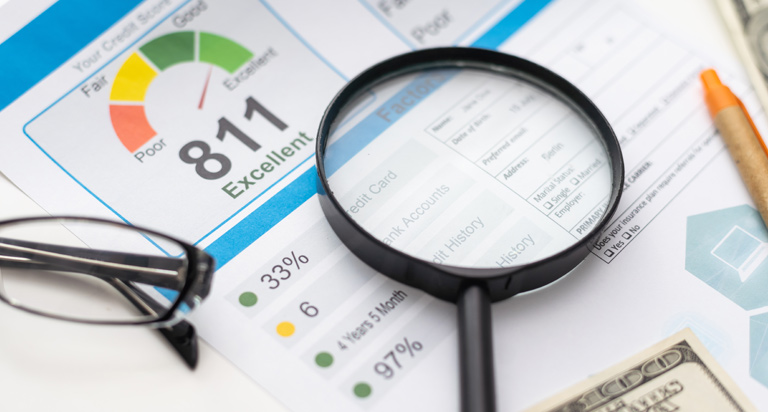
Why Did My Credit Score Drop for No Reason?
Wondering why your credit scores dropped for seemingly no reason? Learn the most common causes of a sudden decrease.
What is a credit report and what information is included on it? Just like school report cards summarize a student’s performance, your credit reports do the same for your financial history. Your credit reports include information about the types of credit accounts you’ve had, your payment history and other information such as your credit limits. Your credit reports are important pieces of financial information that help lenders measure your level of credit risk, or the likelihood you’ll pay your bills on time.

Wondering why your credit scores dropped for seemingly no reason? Learn the most common causes of a sudden decrease.

Discover how a hard inquiry vs. soft inquiry affects your credit with this overview from Equifax®.

If there is information on your credit reports that you believe is inaccurate or incomplete, here are some steps you can take to resolve it — and what to expect if you file a dispute

Do the three nationwide credit bureaus make lending decisions? Where do they get their information? Answers to your questions about credit bureaus.

Credit monitoring services track your credit activity and provide alerts to changes to your credit report. These alerts may signal fraud or identity theft.

If you've changed your legal name, you can also dispute your Equifax® Credit Report to reflect your updated information. Learn how to update your name here.

There are several ways you can get free credit reports from Equifax®, and the other two nationwide credit reporting agencies.

Now you can get your Equifax® US credit report in Spanish online and by mail.

Your credit reports contain information summarizing how you have handled credit accounts, including the types of accounts and your payment history. Learn why it's important to check your credit reports regularly.

Sometimes late payments happen. Learn how late payments impact your credit history, how long they stay on your credit reports, how to remove them and more.

Checking your credit reports can help you detect any inaccurate or incomplete information, but that can be a challenge while incarcerated.

Your credit reports and credit scores are vital pieces of information that are important to your overall financial wellbeing. Learn why it's important to check them regularly.